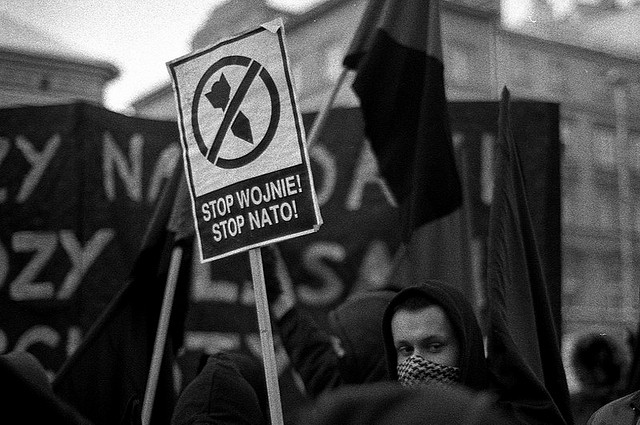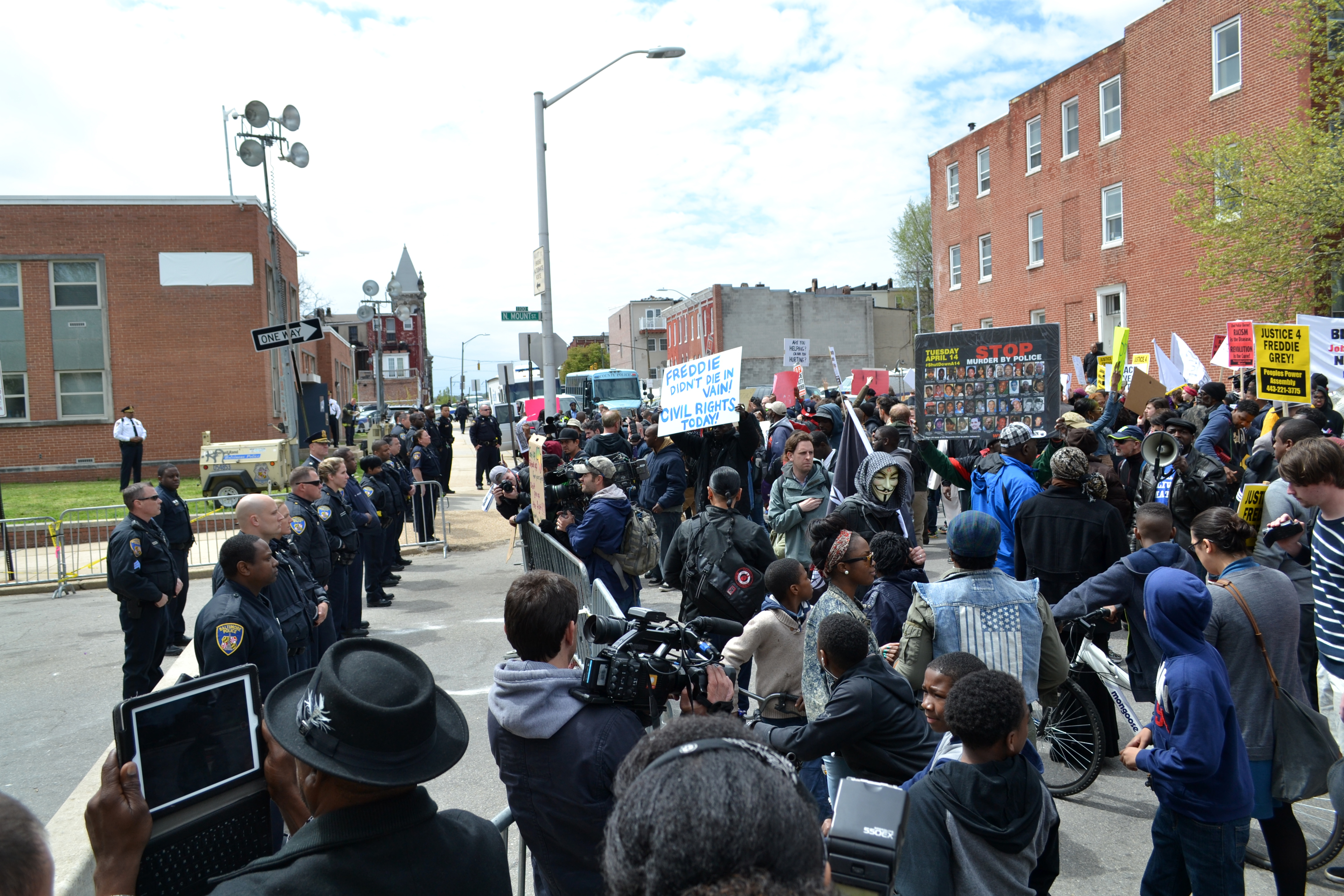At the NATO Summit held earlier this month in Newport, Wales, thousands of protestors descended upon the Welsh city to rally against the possibility of an armed conflict between NATO and Russia. Disenchanted protestors paraded, picketed and shouted anti-war and anti-NATO slogans as around one hundred fifty heads of state and government bureaucrats gathered at the Celtic Manor Resort to discuss international defence. Although the turnout was far fewer than the anticipated (and feared) twenty thousand, there is no denying that anti-NATOism in Europe is widespread.
And this brewing storm has started to squeeze supporters of NATO into a shrinking political Centre, surrounded on two sides by a virulent and well-supported Left, who see NATO as institutional militarism and a threat to world peace, and a burgeoning Right, who see transatlanticism and cooperative defence as infringements upon if not violations of national sovereignty.
Anti-NATOism amongst the Centre-Left Scottish National Party (SNP), in particular, has come about through a fusion of domestic and foreign policy. The SNP’s anti-nuclear stance, which has called for the removal of Great Britain’s nuclear arsenal at its naval base in Faslane, has been largely responsible for anti-NATOism in Scotland.
Indeed, Scotland’s resistance to housing nuclear weapons seems to be the only real reason for opposing NATO membership. As the ‘Yes’ campaign for Scottish independence argues, twenty of twenty-eight NATO members neither possess nor stock nuclear weapon on their soil – so why should Scotland?
Although the SNP, alongside the Scottish Labour Party, has recently softened its stance on NATO membership – outliers such as the Scottish Green Party still reject NATO – the point remains that anti-NATOism in Scotland is bound inextricably to anti-nuclear and anti-war activism. This fusion of domestic and international policy will become only more muddled if the upcoming referendum on independence returns a resounding ‘Yes’. NATO Secretary General Anders Fogh Rasmussen has warned Scotland that its independence would result in the need to re-apply for NATO membership.
If Scotland holds firm on its anti-nuclear policy, re-admission to NATO seems a lengthy, difficult and uncertain process. Des Browne, Scotland’s Secretary of State for Defence between 2006 and 2008 put it bluntly, ‘a vote to leave the UK is a vote to leave NATO’.
In Greece, Syriza, the Coalition of the Radical Left, currently the main opposition party, has entrenched anti-NATOism as part of its political platform. Syriza’s forty-point party manifesto, issued two years ago, calls for ‘Disengagement from NATO’ and the ‘closure of foreign military bases on Greek soil.’
Like Scotland’s SNP, Syriza’s anti-NATOism has been the result of a synthesizing of domestic and foreign policy marked by a rabidly anti-nuclear and anti-war electorate. In particular, its politicians have charged that Greek membership in NATO is at odds with the country’s stringent austerity measures and harsh economic reality. Syriza MP Theodoris Dritsas made this clear in a speech to the Hellenic Parliament in early September, calling for an immediate end to Greece’s membership in NATO and the complete disbanding of NATO as an international body.
Anti-NATOism on the Left has also clustered like-minded groups into an emerging anti-NATO bloc, fed by populist rejection of austerity measures and what they commonly see as gross expenditure on (supra-) national defence and security.
Reacting to NATO’s sixty-fifth anniversary in April, the Communist Party of Russia joined the Communist Party of Portugal and fifty other European left-wing parties in Lisbon to protest against NATO.
The manifesto released by the movement labelled NATO an ‘aggressive alliance’, fixated on the militarization of Europe, and accused NATO of being a puppet of the defence industry. Like Syriza, they demanded the immediate closure of all NATO and foreign military bases, the dismantling of American and NATO missile defence installations across Europe and a permanent moratorium on NATO expansion.
Anti-NATOism amongst the Left has exposed a radical and fundamental shift in how a significant and influential political constituency sees NATO, collective defence and international cooperation. The irony of the Left’s opposition to NATO, whether from anti-austerity, anti-war or anti-nuclear politicians is that the portrayal of NATO as a threat to peace and stability is in direct contrast to the organization’s opening and principle article – the peaceful settlement of international disputes. If the Left continues to gain traction in Europe and NATO becomes a thing of the past, one wonders where the Left would turn to settle international disputes peacefully? That is a question that the Left has failed to address and, frankly, one that needs an answer.




